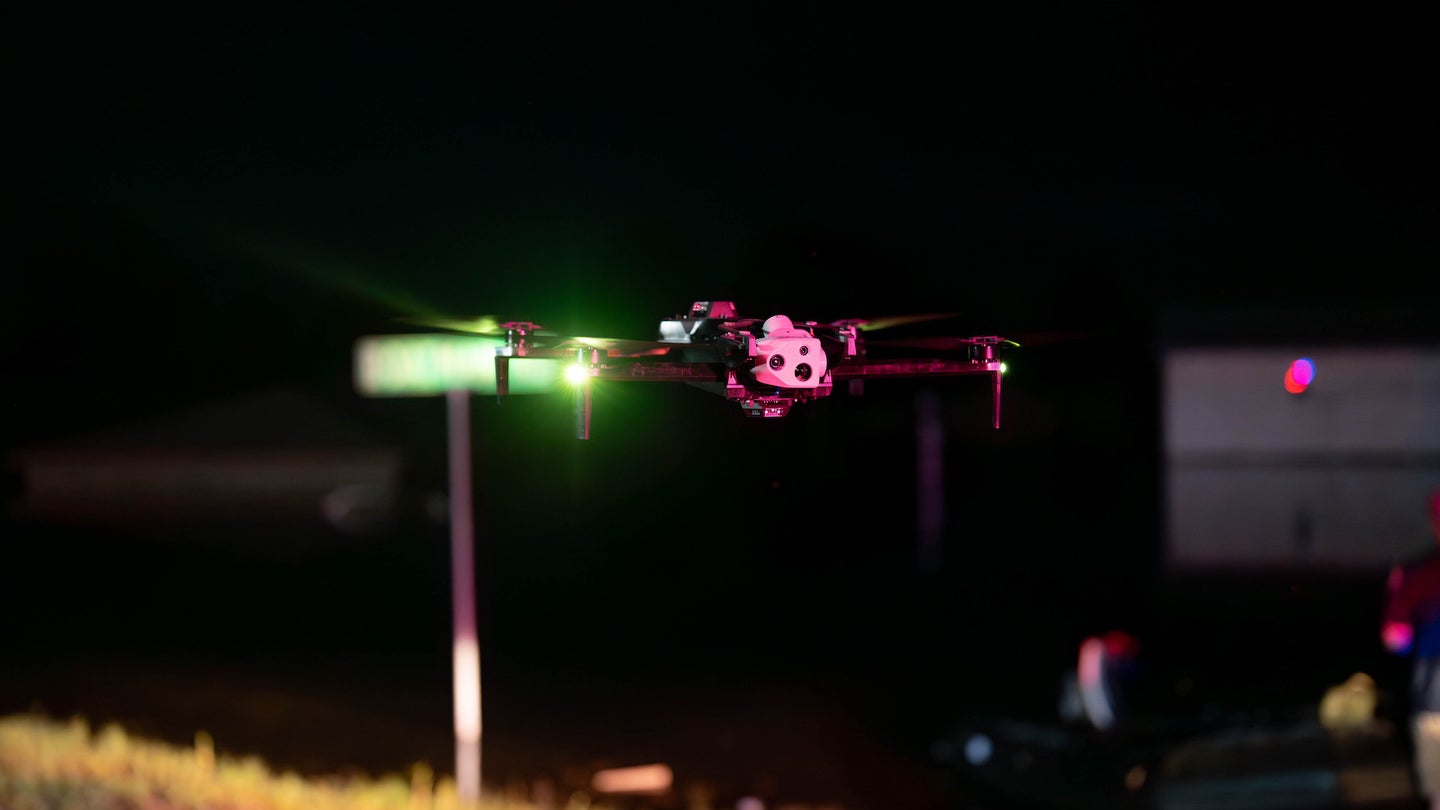A new drone might help cops stop high-speed car chases
Skydio wants its 'intelligent flying machines' to become part of law enforcement's 'basic infrastructure.' Little regulation stands in their way.

A new high-tech surveillance drone developed by a California-based startup Skydio will include infrared sensors, cameras capable of reading license plates as far as 800 feet away, and the ability to reach top speeds of 45 mph. Skydio hopes “intelligent flying machines”–like its new drone X10–will become part of the “basic infrastructure” supporting law enforcement, government organizations, and private businesses. Such an infrastructure is already developing across the country. Meanwhile, critics are renewing their privacy and civil liberties concerns about what they believe remains a dangerously unregulated industry.
Skydio first unveiled its new X10 on September 20, which Wired detailed in a new rundown on Tuesday. The company’s latest model is part of a push to “get drones everywhere they can be useful in public safety,” according to CEO Adam Bry during last week’s launch event. Prior to the X10’s release, Skydio has reportedly sold over 40,000 other “intelligent flying machines” to more than 1,500 clients over the past decade, including the US Army Rangers and the UK’s Ministry of Defense. Skydio execs, however, openly express their desire to continue expanding drone adoption even further via a self-explanatory concept deemed “drone as first responder” (DFR).
[Related: The Army skips off-the-shelf drones for a new custom quadcopter.]
In such scenarios, drones like the X10 can be deployed in less than 40 seconds by on-the-scene patrol officers from within a backpack or car trunk. From there, however, the drones can be piloted via onboard 5G connectivity by operators at remote facilities and command centers. Skydio believes drones like its X10 are equipped with enough cutting edge tools to potentially even aid in stopping high-speed car chases.
To allow for this kind of support, however, drone operators are increasingly required to obtain clearance from the FAA for what’s known as beyond the visual line of sight (BVLOS) flights. Such a greenlight allows drone pilots to control fleets from centralized locations instead of needing to remain onsite. BVLOS clearances are currently major goals for retail companies like Walmart and Amazon, as well as shipping giants like UPS, who will need such certifications to deliver to customers at logistically necessary distances. According to Skydio, the company has already supported customers in “getting over 20 waivers” for BVLOS flight, although its X10 announcement does not provide specifics as to how.
Drone usage continues to rise across countless industries, both commercial and law enforcement related. As the ACLU explains, drones’ usages in scientific research, mapping, and search-and-rescue missions are undeniable, “but deployed without proper regulation, drones [can be] capable of monitoring personal conversations would cause unprecedented invasions of our privacy rights.”
Meanwhile, civil rights advocates continue to warn that there is very little in the way of such oversight for the usage of drones among the public during events such as political demonstrations, protests, as well as even simply large gatherings and music festivals.
“Any adoption of drones, regardless of the time of day or visibility conditions when deployed, should include robust policies, consideration of community privacy rights, auditable paper trails recording the reasons for deployment and the information captured, and transparency around the other equipment being deployed as part of the drone,” Beryl Lipton, an investigative researcher for the Electronic Frontier Foundation, tells PopSci.
“The addition of night vision capabilities to drones can enable multiple kinds of 24-hour police surveillance,” Lipton adds.
Despite Skydio’s stated goals, critics continue to push back against claims that such technology benefits the public, and instead violates privacy rights while disproportionately targeting marginalized communities. Organizations such as the New York Civil Liberties Union cites police drones deployed at protests across 15 cities in the wake of the 2020 murder of George Floyd.
[ Related: Here is what a Tesla Cybertruck cop car could look like ]
Skydio has stated in the past it does not support weaponized drones, although as Wired reports, the company maintains an active partnership with Axon, makers of police tech like Tasers. Currently, Skydio is only integrating its drone fleets with Axon software sold to law enforcement for evidence management and incident responses.
Last year, Axon announced plans to develop a line of Taser-armed drones shortly after the Uvalde school shooting massacre. The news prompted near immediate backlash, causing Axon to backtrack less than a week later—but not before the majority of the company’s AI Ethics board resigned in protest.
Update 09/26/23 1:25pm: This article has been updated to include a response from the Electronic Frontier Foundation.